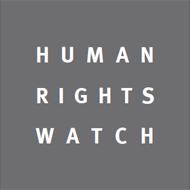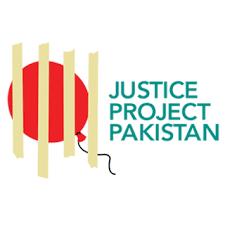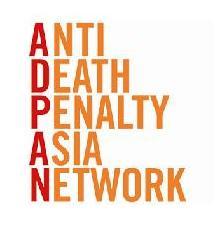Your search “Keep%20the%20death%20penalty%abolished%20in%20the%20ePhilippfines%20e%20e%20e%20e%20e%20e%20e%20e%20e%20e/page/www.deathpenalty.org/downloads/RadeletDeterrenceStudy20e09.pdf ”
Document(s)
The Death Penalty in the OSCE Area – Background Paper 2010
By Organization for Security and Co-operation in Europe (OSCE), on 8 September 2020
2020
NGO report
Albania
ruMore details See the document
This paper updates The Death Penalty in the OSCE Area: Background Paper 2009.It is intended to provide a concise update to highlight changes in the status of thedeath penalty in OSCE participating States since the previous publication and topromote constructive discussion of this issue. It covers the period from 1 July 2009to 30 June 2010. —– To find past OSCE papers please visit: http://www.osce.org/documents?keys=The+Death+Penalty+in+the+OSCE+Area+-+Background+Paper+
- Document type NGO report
- Countries list Albania
- Themes list Trend Towards Abolition,
- Available languages Смертная казнь в регионе ОБСЕ. Справочный документ за 2010 г.
Document(s)
Extrajudicial, summary or arbitrary executions: Report of the Special Rapporteur, Ms. Asma Jahangir, submitted pursuant to Commission on Human Rights resolution 2001/45
By United Nations / Asma Jahangir, on 1 January 2002
2002
International law - United Nations
arrufrzh-hantesMore details See the document
The report also discusses the issue of capital punishment and makes reference to death penalty cases in which the Special Rapporteur has intervened in reaction to reports that the sentences concerned had been passed in violation of international restrictions and human rights standards.
- Document type International law - United Nations
- Themes list Trend Towards Abolition,
- Available languages حالات الإعدام خارج نطاق القضاء أو بإجراء اتموجة أو تعسفاً تقرير المقرر الخاص اسمة جهانقير, مقدم مطابقا لقرار لجنة الحقوق الانسان 2001/45Внесудебные казни, казни без надлежащего судебного разбирательства или произвольные казни: Доклад Специального докладчика г-жи Асмы Джахангир, представленный в соответствии с резолюцией 2001/45 Комиссии по правам человекаExécutions extrajudiciaires, sommaires ou arbitraires: Rapport de la Rapporteuse spéciale, Mme Asma Jahangir, présenté en application de la résolution 2001/45 de la Commission des droits de l'homme法外处决 即审即决或任意处决: 特别报告员阿斯玛 贾汉吉尔女士 根据人权委员会第 2001/45 号决议提交的报告Las ejecuciones extrajudiciales, sumarias o arbitrarias: Informe de la Relatora Especial, Sra. Asma Jahangir, presentado en cumplimiento de la resolución 2001/45 de la Comisión de Derechos Humanos
Document(s)
Extrajudicial, summary or arbitrary executions: Report of the special rapporteur, Ms. Asma Jahangir, submitted pursuant to Commission on Human Rights resolution 1999/35
By United Nations / Asma Jahangir, on 1 January 2000
2000
International law - United Nations
arrufrzh-hantesMore details See the document
In its resolution 1999/35, the Commission on Human Rights requested the Special Rapporteur to continue monitoring the implementation of existing international standards on safeguards and restrictions relating to the imposition of capital punishment, bearing in mind the comments made by the Human Rights Committee in its interpretation of article 6 of the International Covenant on Civil and Political Rights, as well as the Second Optional Protocol thereto.
- Document type International law - United Nations
- Themes list Trend Towards Abolition,
- Available languages حالات الإعدام خارج نطاق القضاء أو بإجراء اتموجة أو تعسفاً تقرير المقرر الخاص اسمة جهانقير, مقدم مطابقا لقرار لجنة الحقوق الانسان 1999/35Внесудебные, суммарные и произвольные казни: Отчет специального докладчика Асмы Джахангир (Asma Jahangir) предоставленный в ответ на резолюцию 1999/35 Комиссии по правам человекаExécutions extrajudiciaires, sommaires ou arbitraires: Rapport de Mme Asma Jahangir, Rapporteuse spéciale, présenté conformément à la résolution 1999/35 de la Commission des droits de l'homme法外处决即审即决或任意处决: 特别报告员阿斯玛贾汉吉尔女士根据人权委员会第1999/35 号决议提交的报告Las ejecuciones extrajudiciales, sumarias o arbitrarias: Informe de la Relatora Especial, Sra. Asma Jahangir, presentado en cumplimiento de la resolución 1999/35 de la Comisión de Derechos Humanos
Document(s)
Extrajudicial, summary or arbitrary executions: Report of the Special Rapporteur, Asma Jahangir, submitted pursuant to Commission on Human Rights resolution 2002/36
By United Nations / Asma Jahangir, on 1 January 2003
2003
International law - United Nations
arrufrzh-hantesMore details See the document
The report also discusses the issue of capital punishment and makes reference to death penalty cases in which the Special Rapporteur has intervened in reaction to reports that the sentences concerned had been passed in violation of international restrictions and human rights standards.
- Document type International law - United Nations
- Themes list Trend Towards Abolition,
- Available languages حالات الإعدام خارج نطاق القضاء أو بإجراء اتموجة أو تعسفاً تقرير المقرر الخاص اسمة جهانقير, مقدم مطابقا لقرار لجنة الحقوق الانسان 2002/36Внесудебные казни, казни без надлежащего судебного разбирательства или произвольные казни: Доклад Специального докладчика Асмы Джахангир, представленный в соответствии с резолюцией 2002/36 Комиссии по правам человекаExécutions extrajudiciaires, sommaires ou arbitraires: Rapport de la Rapporteuse spéciale, Mme Asma Jahangir, soumis en application de la résolution 2002/36 de la Commission des droits de l’homme法外处决、即审即决或任意处决: 特别报告员阿斯玛·贾汉吉尔根据人权委员会第 2002/36 号决议提交的报告Las ejecuciones extrajudiciales, sumarias o arbitrarias: Informe de la Relatora Especial, Asma Jahangir, presentado en cumplimiento de la resolución 2002/36 de la Comisión de Derechos Humanos
Document(s)
Moratoriums on the use of the death penalty. Report of the Secretary-General (2010)
By United Nations, on 8 September 2020
2020
United Nations report
frarruzh-hantesMore details See the document
The present report is submitted to the General Assembly pursuant to General Assembly resolution 63/168. The report confirms the global trend towards abolition of the death penalty. It also recommends that Member States introduce a moratorium on the death penalty. Those States which still intend to implement the death penalty and are not willing to establish a moratorium should apply the death penalty only in the case of the most serious crimes. The protection of the rights of those facing the death penalty should be ensured, pursuant to the relevant international laws. Furthermore, in that regard, States have an obligation not to practise the death penalty in secrecy, nor to practice discrimination in its application.
- Document type United Nations report
- Themes list Moratorium ,
- Available languages Rapport 2013 - Moratoire sur l'application de la peine de mortوقف تطبيق عقوبة الإعدام تقرير الأمين العامМоратории на применение смертной казни : Доклад Генерального секретаря暂停使用死刑: 秘书长的报告Moratoria del uso de la pena de muerte : Informe del Secretario General
Document(s)
Question of the death penalty: Report of the Secretary-General
By United Nations, on 1 January 2008
2008
International law - United Nations
frarruzh-hantesMore details See the document
The present report contains information on the question of the death penalty covering the period from June 2009 to July 2010, and draws attention to a number of phenomena, including the continuing trend towards abolition and the ongoing difficulties experienced in gaining access to reliable information on executions.
- Document type International law - United Nations
- Themes list Trend Towards Abolition,
- Available languages Questions de la peine de mort: Rapport du Secrétaire généralمسألة عقوبة الإعدام: تقرير مقدم من الأمين العامВопрос о смертной казни: Доклад Генерального секретаря死刑问题: 秘书长的报告La cuestión de la pena capital: Informe del Secretario General
Document(s)
Question of the death penalty : Report of the Secretary-General
By United Nations, on 8 September 2020
2020
United Nations report
arruzh-hantesfrMore details See the document
The present report contains information covering the period from June 2008 to July 2009, and draws attention to a number of phenomena, including the continuing trend towards abolition, the practice of engaging in a national debate on the death penalty, and the ongoing difficulties in gaining access to reliable information on executions.
- Document type United Nations report
- Themes list Trend Towards Abolition,
- Available languages مسألة عقوبة الإعدام : تقرير مقدم من الأمين العامВопрос о смертной казни : Доклад Генерального секретаря死刑问题 : 秘书长的报告La cuestión de la pena capital : Informe del Secretario GeneralQuestion de la peine de mort : Rapport du Secrétaire général
Document(s)
Question of the death penalty: Report of the Secretary-General
By United Nations, on 1 January 2008
2008
International law - United Nations
arrufrzh-hantesMore details See the document
The present report contains information covering the period from January 2006 to May 2008. The report indicates that the trend towards abolition of the death penalty continues; this is illustrated, inter alia, by the increase in the number of countries that are completely abolitionist and by the increase in ratifications of international instruments that provide for the abolition of this form of punishment.
- Document type International law - United Nations
- Themes list Trend Towards Abolition,
- Available languages مسألة عقوبة الإعدام: تقرير مقدم من الأمين العامВопрос о смертной казни: Доклад Генерального секретаряQuestion de la peine de mort : Rapport du Secrétaire général死刑问题: 秘书长的报告La cuestión de la pena capital: Informe del Secretario General
Document(s)
The question of the death penalty: Report of the Secretary-General
By United Nations, on 1 January 2006
2006
International law - United Nations
arrufrzh-hantesMore details See the document
The present report contains information covering the period from January 2004 to December 2005. The report indicates that the trend towards abolition of the death penalty continues; this is illustrated, inter alia, by the increase in the number of countries that are completely abolitionist and by the increase in ratifications of international instruments that provide for the abolition of this punishment.
- Document type International law - United Nations
- Themes list Trend Towards Abolition,
- Available languages مسألة عقوبة الإعدام; تقرير الأمين العامВопрос о смертной казни: Доклад Генерального секретаряQuestion de la peine de mort : Rapport du Secrétaire général死刑问题: 秘书长的报告La cuestión de la pena capital: Informe del Secretario General
Document(s)
Capital punishment and implementation of the safeguards guaranteeing protection of the rights of those facing the death penalty : report of the Secretary-General
By United Nations, on 1 January 2001
2001
United Nations report
arruesesenarrufrfrzh-hantzh-hantMore details See the document
The report shows an encouraging trend towards abolition and restriction of the use of capital punishment in most countries. It also shows that much remains to be done in the implementation of the safeguards guaranteeing protection of the rights of persons facing the death penalty in those countries that retain it.
- Document type United Nations report
- Themes list Trend Towards Abolition,
- Available languages عقوبة الإعدام وتنفيذ الضمانات التي تكفل حماية حقوق الذين يواجهون عقوبة الإعدام : م ذكّرة من الأمين العامСмертная казнь и применение мер, гарантирующих защиту прав тех, кому грозит смертная казнь : Доклад Генерального секретаряLa pena capital y la aplicación de las salvaguardias para garantizar la protección de los derechos de los condenados a la pena de muerte : Informe del Secretario GeneralLa pena capital y la aplicación de las salvaguardias para garantizar la protección de los derechos de los condenados a la pena de muerte : Informe del Secretario GeneralCapital punishment and implementation of the safeguards guaranteeing protection of the rights of those facing the death penalty: Report of the Secretary-Generalعقوبة الإعدام وتنفيذ الضمانات التي تكفل حقوق ال ذين يواجهون عقوبة الإعدام :تقرير الأمين العامСмертная казнь и осуществление мер, гарантирующих защиту прав тех, кто приговорен к смертной казни: Доклад Генерального секретаряPeine capitale et application des garanties pour la protection des droits des personnes passibles de la peine de mort: Rapport du Secrétaire généralPeine capitale et application des garanties pour la protection des droits des personnes passibles de la peine de mort: Rapport du Secrétaire général死刑和保护死刑犯权利的保障措施的执行情况: 秘书长的报告死刑和保护死刑犯权利的保障措施的执行情况: 秘书长的报告
Document(s)
Question of the death penalty : report of the Secretary-General submitted pursuant to Commission on Human Rights resolution 2002/77
By United Nations, on 1 January 2003
2003
International law - United Nations
arrufrzh-hantesMore details See the document
The present report contains information covering the period from January 2001 through December 2002, in order to ensure that there are no gaps in coverage since the last version of the sixth quinquennial report which covered information up to the end of 2000. The report indicates that the trend towards abolition of the death penalty continues, which is illustrated, inter alia, by the increase in the number of ratifications of international instruments that provide for the abolition of this punishment.
- Document type International law - United Nations
- Themes list Trend Towards Abolition,
- Available languages الموضوع العقوبة الاعدام : تقرير الأمين العام مقدم بشأن قرار اللجنة للحقوق الانسان 2002/77Вопрос о смертной казни: Доклад Генерального секретаря, представляемый в соответствии с резолюцией 2002/77 КомиссииQuestion de la peine de mort: Rapport du Secrétaire général présenté en application de la résolution 2002/77死刑问题: 秘书长按照委员会第2002/77 号决议提交的报告Cuestión de la pena capital: Informe del Secretario General presentado de conformidad con la resolución 2002/77 de la Comisión
Document(s)
Resolution 65/206 – Moratorium on the use of the death penalty
By United Nations General Assembly, on 8 September 2020
2020
International law - United Nations
aresfrruzh-hantMore details See the document
Resolution adopted by the General Assembly [on the report of the Third Committee (A/65/456/Add.2 (Part II))] 65/206. Moratorium on the use of the death penalty
- Document type International law - United Nations
- Available languages قرار ٦٥/ ٢٠٦ - وقف العمل بعقوبة الإعدامResolución 65/206 - Moratoria del uso de la pena de muerteRésolution 65/206 - Moratoire sur l'application de la peine de mortРезолюция 65/206 - Мораторий на применение смертной казни大会决议65/206 - 暂停使用死刑
Document(s)
Extrajudicial, summary or arbitrary executions: Report of the Special Rapporteur, Asma Jahangir
By United Nations / Asma Jahangir, on 1 January 2003
2003
International law - United Nations
frzh-hantesarruMore details See the document
The report also discusses the issue of capital punishment and makes reference to death penalty cases in which the Special Rapporteur has intervened in reaction to reports that the sentences concerned had been passed in violation of international restrictions and human rights standards.
- Document type International law - United Nations
- Themes list Trend Towards Abolition,
- Available languages Exécutions extrajudiciaires, sommaires ou arbitraires: Rapport de la Rapporteuse spéciale, Mme Asma Jahangir法外处决、即审即决或任意处决: 特别报告员阿斯玛·贾汉吉尔Las ejecuciones extrajudiciales, sumarias o arbitrarias: Informe de la Relatora Especial, Asma Jahangirحالات الإعدام خارج نطاق القضاء أو بإجراء اتموجة أو تعسفاً تقرير المقرر الخاص اسمة جهانقيرВнесудебные, суммарные и произвольные казни: Отчет специального докладчика Асмы Джахангир (Asma Jahangir)
Document(s)
Capital punishment and implementation of the safeguards guaranteeing protection of the rights of those facing the death penalty: Report of the Secretary-General
By United Nations, on 1 January 2005
2005
International law - United Nations
arruesesarruenfrfrzh-hantzh-hantMore details See the document
The present report, prepared pursuant to Economic and Social Council resolutions 1754 (LIV) of 16 May 1973 and 1995/57 of 28 July 1995, is the seventh quinquennial report of the Secretary-General on capital punishment.1 It covers the period 1999-2003 and reviews developments in the use of capital punishment worldwide, both in law and in practice. The report shows an encouraging trend towards abolition and restriction of the use of capital punishment in most countries. It also shows that much remains to be done in the implementation of the safeguards guaranteeing protection of the rights of persons facing the death penalty in those countries that retain it.
- Document type International law - United Nations
- Themes list Trend Towards Abolition,
- Available languages عقوبة الإعدام وتنفيذ الضمانات التي تكفل حماية حقوق الذين يواجهون عقوبة الإعدام : م ذكّرة من الأمين العامСмертная казнь и применение мер, гарантирующих защиту прав тех, кому грозит смертная казнь : Доклад Генерального секретаряLa pena capital y la aplicación de las salvaguardias para garantizar la protección de los derechos de los condenados a la pena de muerte : Informe del Secretario GeneralLa pena capital y la aplicación de las salvaguardias para garantizar la protección de los derechos de los condenados a la pena de muerte : Informe del Secretario Generalعقوبة الإعدام وتنفيذ الضمانات التي تكفل حقوق ال ذين يواجهون عقوبة الإعدام :تقرير الأمين العامСмертная казнь и осуществление мер, гарантирующих защиту прав тех, кто приговорен к смертной казни: Доклад Генерального секретаряCapital punishment and implementation of the safeguards guaranteeing protection of the rights of those facing the death penalty : report of the Secretary-GeneralPeine capitale et application des garanties pour la protection des droits des personnes passibles de la peine de mort: Rapport du Secrétaire généralPeine capitale et application des garanties pour la protection des droits des personnes passibles de la peine de mort: Rapport du Secrétaire général死刑和保护死刑犯权利的保障措施的执行情况: 秘书长的报告死刑和保护死刑犯权利的保障措施的执行情况: 秘书长的报告
Document(s)
Capital punishment and implementation of the safeguards guaranteeing protection of the rights of those facing the death penalty : report of the Secretary-General
By United Nations, on 1 January 2001
2001
United Nations report
arrufrzh-hantesMore details See the document
The present, sixth quinquennial report contains a review of the trends in the application of the death penalty, including the implementation of the safeguards, during the period l994-2000. It is a revised, updated version of the report of the Secretary-General on the subject (E/2000/3) that was submitted to the Council at its substantive session of 2000, to the Commission on Crime Prevention and Criminal Justice at its ninth session and to the Commission on Human Rights at its fifty-sixth session. Sixty-three countries participated in the survey. There was again a relatively poor response from retentionist countries, especially those making the most use of capital punishment. One major conclusion to be drawn is that, since l994, the rate at which countries have embraced abolition has remained unchanged.
- Document type United Nations report
- Themes list Trend Towards Abolition,
- Available languages عقوبة الإعدام وتنفيذ الضمانات التي تكفل حماية حقوق الذين يواجهون عقوبة الإعدام : م ذكّرة من الأمين العامСмертная казнь и применение мер, гарантирующих защиту прав тех, кому грозит смертная казнь : Доклад Генерального секретаряPeine capitale et application des garanties pour la protection des droits des personnes passibles de la peine de mort: Rapport du Secrétaire général死刑和保护死刑犯权利的保障措施的执行情况: 秘书长的报告La pena capital y la aplicación de las salvaguardias para garantizar la protección de los derechos de los condenados a la pena de muerte: Informe del Secretario General
Document(s)
Report of the Special Rapporteur on extrajudicial, summary or arbitrary executions, Philip Alston
By United Nations / Philip Alston, on 1 January 2007
2007
International law - United Nations
arrufresMore details See the document
The present report details the activities of the Special Rapporteur in 2009 and the first four months of 2010. This is the final report to the Human Rights Council by Philip Alston in his capacity as Special Rapporteur. It analyses the activities and working methods of the mandate over the past six years, and identifies important issues for future research. Detailed addenda to this report address: (a) accountability for killings by police; (b) election-related killings; and (c) targeted killings.
- Document type International law - United Nations
- Themes list Trend Towards Abolition,
- Available languages تقرير المقرر الخاص المعني بحالات الإعدام خارج نطاق القضاءأو بإجراءات موجزة أو تعسفًا، السيد فيليب ألستونДоклад Специального докладчика по вопросу о внесудебных казнях, казнях без надлежащего судебного разбирательства или произвольных казнях, Филипа АлстонаRapport du Rapporteur spécial sur les exécutions extrajudiciaires, sommaires ou arbitraires, M. Philip AlstonInforme del Relator Especial, Philip Alston, sobre las ejecuciones extrajudiciales, sumarias o arbitrarias
Document(s)
Report of the Special Rapporteur on extrajudicial, summary or arbitrary executions, Philip Alston
By United Nations / Philip Alston, on 1 January 2007
International law - United Nations
arrufrzh-hantzh-hantesMore details See the document
In addition to reporting on the principal initiatives undertaken in 2006 to address the scourge of extrajudicial executions around the world, this report focuses on four issues of particular importance: (a) the mandate of the Special Rapporteur in armed conflicts; (b) “mercy killings” in armed conflict; (c) the “most serious crimes” for which the death penalty may be imposed; and (d) the international law status of the mandatory death penalty.
- Document type International law - United Nations
- Themes list Trend Towards Abolition,
- Available languages تقرير المقرر الخاص المعني بحالات الإعدام خارج نطاق القضاءДоклад Специального докладчика по вопросу о внесудебных казнях, казнях без надлежащего судебного разбирательства или произвольных казнях Филипа АлстонаRapport du Rapporteur spécial sur les exécutions extrajudiciaires, sommaires ou arbitraires, M. Philip Alston法外处决、即审即决或任意处决问题特别报告员菲利普·奥尔斯顿的报告法外处决、即审即决或任意处决问题特别报告员菲利普·奥尔斯顿的报告Informe del Relator Especial, Philip Alston, sobre las ejecuciones extrajudiciales, sumarias o arbitrarias
Document(s)
Extrajudicial, summary or arbitrary executions: Report of the Special Rapporteur, Philip Alston
By United Nations / Philip Alston, on 1 January 2004
2004
International law - United Nations
arfrzh-hantesruMore details See the document
This report is submitted pursuant to Commission resolution 2005/34, and should be read in conjunction with its various addenda. They provide the following: a detailed analysis of communications sent to Governments which describe alleged cases of extrajudicial executions; reports on country missions to Nigeria and Sri Lanka during 2005; a report on the principle of transparency in relation to the death penalty; and several reports aimed at following up on earlier country missions to the Sudan, Brazil, Honduras and Jamaica.
- Document type International law - United Nations
- Themes list Trend Towards Abolition,
- Available languages تعسفاً أو موجزة بإجراءات أو القضاء نطاق خارج الإعدام حا ألستون* فيليب الخاص المقرر تExécutions extrajudiciaires, sommaires ou arbitraires: Rapport du Rapporteur spécial, Philip Alston法外处决、即审即决或任意处决问题特别报告员: 菲利普·奥尔斯顿的报告Las ejecuciones extrajudiciales, sumarias o arbitrarias: Informe del Relator Especial, Sr. Philip AlstonВнесудебные казни, казни без надлежащего судебного разбирательства или произвольные казни: Доклад Специального докладчика Филипа Алстона
Document(s)
TRANSPARENCY AND THE IMPOSITION OF THE DEATH PENALTY, Report of the Special Rapporteur, Philip Alston
By United Nations / Philip Alston, on 1 January 2006
2006
International law - United Nations
arrufrzh-hantesMore details See the document
The present report of the Special Rapporteur on extrajudicial, summary or arbitrary executions analyses a critical area of non-compliance with legal safeguards designed to protect the right to life. It builds upon the proposition that “[c]ountries that have maintained the death penalty are not prohibited by international law from making that choice, but they have a clear obligation to disclose the details of their application of the penalty” (E/CN.4/2005/7, para. 59). The report analyses the legal basis of that transparency obligation and examines case studies that illustrate the major problems that exist in this area.
- Document type International law - United Nations
- Themes list Trend Towards Abolition,
- Available languages الإعدام عقوبة وفرض الش, ألستون∗ فيليب السيد الخاص، المقررТРАНСПАРЕНТНОСТЬ И ВЫНЕСЕНИЕ СМЕРТНОГО ПРИГОВОРА, Доклад Специального докладчика Филипа АлстонаTRANSPARENCE ET IMPOSITION DE LA PEINE DE MORT, Rapport du Rapporteur spécial, M. Philip Alston死刑的公开和执行问题, 特别报告员菲利普·奥尔斯顿的报告LA TRANSPARENCIA Y LA IMPOSICIÓN DE LA PENA DE MUERTE, Informe del Relator Especial, Philip Alston
Document(s)
Extrajudicial, summary or arbitrary executions: Report of the Special Rapporteur, Philip Alston
By United Nations / Philip Alston, on 1 January 2004
2004
International law - United Nations
arrufrzh-hantesMore details See the document
The analytical part of the report focuses in depth on a narrow range of issues, with an overall emphasis on accountability. The four principal topics addressed are: (i) genocide and crimes against humanity; (ii) violations of the right to life in armed conflict and internal strife; (iii) capital punishment; and (iv) violations of the right to life by non-State actors.
- Document type International law - United Nations
- Themes list Trend Towards Abolition,
- Available languages ح ا لا ت ا لإ ع د ا م خ ا ر ج ن ط ا ق ا ل ق ض ا ء أ و ب إ ج ر ا ء ا ت م و ج زة أ و ت عس ف ا ً تقرير المقرر الخاص فيليب ألستونВнесудебные казни, казни без надлежащего судебного разбирательства или произвольные казни: Доклад Специального докладчика Филипа АлстонаExécutions extrajudiciaires, sommaires ou arbitraires: Rapport du Rapporteur spécial, M. Philip Alston法外处决、即审即决或任意处决问题特别报告员; 菲利普·奥尔斯顿Las ejecuciones extrajudiciales, sumarias o arbitrarias: Informe del Relator Especial, Philip Alston

Member(s)
Association Marocaine des Droits Humains (AMDH)
on 30 April 2020
Association marocaine des droits humains (AMDH) works towards safeguarding human dignity and for the respect, defence and promotion of human rights. Convinced of the universal nature of these rights, the AMDH bases its action on the international agreements which defend them. It campaigns for them to be respected in the political, civil, economic, social and […]
2020
Morocco

Member(s)
Amnesty International (AI)
on 30 April 2020
Amnesty International (AI) is a worldwide voluntary activist movement working for human rights. It is independent of any government, political ideology, or religious creed, economic interest or religion. It does not support or oppose any government or political system, nor does it support or oppose the views of the victims whose rights it seeks to […]
United Kingdom

Member(s)
The Death Penalty Project (DPP)
on 30 April 2020
The Death Penalty Project is an international legal action charity, based in London, working to promote and protect the human rights of those facing the death penalty. We provide free legal representation to death row prisoners around the world, with a focus on Commonwealth countries, to highlight miscarriages of justice and breaches of human rights. […]
United Kingdom

Member(s)
Lifespark
on 30 April 2020
lifespark is a Swiss organization and was founded in January 1993. lifespark is a non-profit organization, financed by membership dues and donations. All work for lifespark is done on a voluntary basis. lifespark has a central governing body; it has members from all linguistic regions of Switzerland. As of the end of 2012, the organization […]
Switzerland

Member(s)
Ligue des droits de l’Homme
on 30 April 2020
Founded in 1898 during the Dreyfus affair, the League for Human Right (LDH) has a rich history thanks to a century of activism and attentive monitoring of all major contemporary issues. Originally, its mandate was to defend an innocent man, victim of anti-Semitism and reason of state, but the LDH expanded its actions to include […]
France

Member(s)
Palestinian Center for Human Rights
on 30 April 2020
The Palestinian Centre for Human Rights (PCHR) is an independent Palestinian human rights organisation based in Gaza City. It enjoys Consultative Status with the ECOSOC of the United Nations and is an affiliate of the International Commission of Jurists (Geneva), the International Federation for Human Rights (Paris), the Euro-Mediterranean Human Rights Network (Copenhagen) and the […]
State of Palestine

Member(s)
People of Faith Against the Death Penalty
on 30 April 2020
People of Faith Against the Death Penalty (PFADP) is a nongovernmental organisation whose mission is to educate and mobilise faith communities to act to abolish the death penalty in the United States. Founded in 1994 in North Carolina, PFADP focuses its programs on organising among faith communities in the Southern United States, where most executions […]
United States

Member(s)
National Lawyers Guild (NLG)
on 30 April 2020
The National Lawyers Guild (NLG) is an association dedicated to the need for basic and progressive change in the structure of the US political and economic system. It seeks to unite the lawyers, law students, legal workers and jailhouse lawyers of America in an organization that shall function as an effective political and social force […]
United States

Member(s)
Avocats Sans Frontières France
on 30 April 2020
The mandate and objectives of Avocats Sans Frontières France are: 1. Defending lawyers and defenders of human rights subject to threats or attacks of any kind because of their exercise professional; 2. Contribute to the effective implementation of human rights, universally recognized for ensuring the acces to any private person to a free and independent […]
France

Member(s)
Witness to Innocence
on 30 April 2020
The mission of Witness to Innocence (WTI) is to unite U.S. exonerated death row survivors and their loved ones to become a powerful force for social justice and transformation. WTI seeks to abolish the death penalty, to reform the U.S. criminal justice system to prevent wrongful convictions, and to secure fair financial compensation and social […]
United States
Member(s)
Legal Defence & Assistance Project (LEDAP)
on 30 April 2020
LEDAP – Legal Defence & Assistance Project provides legal aid to victims of human rights violations, campaign for abolition of the death penalty in Nigeria, documentation of unlawful killings in Nigeria, support to torture survivors, domestic violence support to victims, legislative advocacy on criminal justice, gender violence, human rights. LEDAP is a member of the […]
Nigeria
Member(s)
Center for Constitutional Rights
on 30 April 2020
Center for Constitutional Rights is an American NGO based in New York. The Center for Constitutional Rights is committed to fighting injustice on many fronts, as demonstrated by the breadth of our cases as well as our organizing work. CCR works on a wide range of issues: illegal surveillance and attacks on dissent, Criminal Justice […]
United States

Member(s)
Human Rights Activists in Iran (HRAI)
on 30 April 2020
Human Rights Activists in Iran (also known as HRAI and HRA) is a non-political and non-governmental organization comprised of advocates who defend human rights in Iran. HRAI was founded in 2006 and aims to promote, safeguard and sustain human rights in Iran. The organization keeps the Iranian community and the world informed by monitoring human […]
Iran (Islamic Republic of)

Member(s)
Parliamentarians for Global Action (PGA)
on 30 April 2020
Parliamentarians for Global Action (PGA), a non-profit, non-partisan international network of over 1,200 legislators in approximately 130 elected parliaments around the globe, aims to promote peace, democracy, the rule of law, human rights, gender equality and population issues by informing, convening, and mobilizing parliamentarians to realize these goals. The network of legislators’ programme of work […]
United States

Member(s)
International Association of Lawyers
on 30 April 2020
Established in 1927, and with members in 110 countries, the UIA (International Association of Lawyers) is a global and multi-cultural organization for the legal profession that facilitates professional development, stimulates learning and networking, and promotes the Rule of Law. UIA is open to all the world’s lawyers, both general practitioners and specialists. The UIA’s members […]
France

Member(s)
Journey of Hope… From Violence to Healing
on 30 April 2020
“Journey of Hope…from Violence to Healing is an organisation led by murder victim family members joined by death row family members, family members of the executed, the exonerated, and others with stories to tell, that conducts public education speaking tours and addresses alternatives to the death penalty. Every year, the organisation arranges a Journey of […]
United States

Member(s)
The Human Rights Centre “Viasna”
on 30 April 2020
The Human Rights Centre “Viasna” is a non-governmental human rights organization active since 1996. It is a nation-wide NGO with a central office in Minsk and a dozen local offices across the country. Viasna has about 200 members. In 2003, the Supreme Court groundlessly cancelled the registration of Viasna for its participation in the observation […]
Belarus

Member(s)
Belarusian Helsinki Committee
on 30 April 2020
Founded in 1995, the National Human Rights Public Association “Belarusian Helsinki Committee” is one of the oldest human rights defenders organizations in Belarus. The list of its founders includes the nation’s most prominent leaders such as Vasil’ Bykau, Sviatlana Alexievich (Nobel prize in literature 2015). BHC sees as its main objective creating of civic context, […]
Belarus

Member(s)
Human Rights Watch
on 30 April 2020
Human Rights Watch is a nonprofit, nongovernmental human rights organization made up of more than 275 staff members around the globe. Its staff consists of human rights professionals including country experts, lawyers, journalists, and academics of diverse backgrounds and nationalities. Human Rights Watch is known for its accurate fact-finding, impartial reporting, effective use of media, […]
France

Member(s)
HURILAWS
on 30 April 2020
HURILAWS began operations in 1997 as a specialist provider of human rights legal services and a purveyor of skills in the legal aspects of transition management. Today HURILAWS is also a public policy think tank working towards attainment of development, human rights and good governance. In particular, HURILAWS is the driver of the Multi-Sector Law […]
Nigeria

Member(s)
Taiwan Alliance to End the Death Penalty (TAEDP)
on 30 April 2020
The Taiwan Alliance to End the Death Penalty (TAEDP) is a coalition of local abolitionist NGOs and research institutes, which promotes the reform of Taiwan’s penal system in addition to advocating the abolition of the death penalty. It was launched in September 2003, by the Taiwan Association for Human Rights (TAHR), the Judicial Reform Foundation […]
Taiwan

Member(s)
Women’s Information Consultative Center
on 30 April 2020
The main goal of the Women’s Information Consultative Center is to gather, generalise and disseminate information about women’s human rights and initiatives among women inside and outside Ukraine. Another goal of the Center is to create a discussion about gender issues in the political and social life of Ukraine to achieve real equality in society. […]
Ukraine

Member(s)
Justice Project Pakistan (JPP)
on 30 April 2020
Justice Project Society, commonly referred to as Justice Project Pakistan (JPP), represents the most vulnerable Pakistani prisoners facing the harshest punishments at home and abroad, including those facing the death penalty, mentally ill prisoners, juvenile prisonners, women, victims of police torture, and overseas Pakistani prisoners. JPP was the winner of the 2016 Franco-German Human Rights […]
Pakistan

Member(s)
Réseau d’alerte et d’intervention pour les droits de l’Homme (RAIDH)
on 30 April 2020
The Alert and Intervention Network for Human Rights (Réseau d’alerte et d’intervention pour les droits de l’Homme (RAIDH) aims to organise, finance and support any work, initiatives, measures, ideas or discussions which aim to defend and promote human rights (particularly civil and political rights, economic, social and cultural rights, international humanitarian rights, rights for refugees, […]
France

Member(s)
Kenyan Section of the International Commission of Jurists (ICJ-KENYA)
on 30 April 2020
Mandate and goals : – To develop, strengthen and protect the principles of the rule of law in Kenya. – Develop, maintain and protect the independence of the judiciary and the legal profession in Kenya. – Protect and promote the enjoyment of human rights in Kenya and Africa. Kind of actions : – Legal research […]
Kenya

Member(s)
National Association of Criminal Defense Lawyers (NACDL)
on 30 April 2020
The National Association of Criminal Defense Lawyers is the preeminent organization advancing the mission of the criminal defense bar to ensure justice and due process for persons accused of crime or wrongdoing. A professional bar association founded in 1958, NACDL’s 12,000-plus direct members in 28 countries – and 90 state, provincial and local affiliate organizations […]
United States

Member(s)
Anti-Death Penalty Asia Network (ADPAN)
on 30 April 2020
The Anti-Death Penalty Asia Network (ADPAN) was founded in Hong Kong on the World Day against the Death Penalty in 2006. In 2014, at its first General Meeting in Taipei, Taiwan, Anti-Death Penalty Asia Network (ADPAN) members approved ADPAN’s Constitution, and ADPAN’s first Executive Committee was elected. ADPAN, an independent Asia-Pacific network committed to working […]
Malaysia

Member(s)
Barreau de Paris
on 30 April 2020
The Paris Bar was founded under the reign of Louis XIV. Nowadays, it represents around 20 000 lawyers, i.e. nearly half of those practicing in France. Its prime objectives are to organise and structure the legal profession, to strengthen training and adapt it to the deep changes occurring in society and to expand the role […]
France
Document(s)
Death Penalty India Report – Volume 1
By Anup Surendranath / National Law University, New Delhi Press, on 8 September 2020
2020
NGO report
India
More details See the document
This project sought to answer questions regarding the socio-economic profile of prisoners sentenced to death in India while looking into the process of death sentencing in itself. By means of meaningful statistics and case studies, this report manages to enlighten some aspects of the death penalty in India which are generally not fully explored and triggers a sociological discussion on these thorny issues that goes beyond the legal analysis of Supreme Court judgments.Chapters:1) Coverage of the project2) Durations on death row3) Nature of crimes4) Socio-economic profile5) Legal assistanceLink to Volume 2: http://www.worldcoalition.org/resourcecentre/document/id/1463669874
- Document type NGO report
- Countries list India
- Themes list Discrimination, Country/Regional profiles,
Document(s)
Death Penalty India Report – Volume 2
By Anup Surendranath / National Law University, New Delhi Press, on 8 September 2020
NGO report
India
More details See the document
This project sought to answer questions regarding the socio-economic profile of prisoners sentenced to death in India while looking into the process of death sentencing in itself. By means of meaningful statistics and case studies, this report manages to enlighten some aspects of the death penalty in India which are generally not fully explored and triggers a sociological discussion on these thorny issues that goes beyond the legal analysis of Supreme Court judgments.Chapters:6) Experience in custody7) Trial and appeals8) Living on death row9) Seeking mercy10) ImpactLink to Volume 1: http://www.worldcoalition.org/resourcecentre/document/id/1462890615
- Document type NGO report
- Countries list India
- Themes list Discrimination, Country/Regional profiles,
Document(s)
(Not) Talking about Capital Punishment in the Xi Jinping Era
By Tobias Smith, Matthew Robertson and Susan Trevaskes, on 1 September 2022
2022
Academic report
China
More details See the document
An investigation into the death penalty in the People’s Republic of China in the Xi Jinping era (2012–) shows that unlike previous administrations, Xi does not appear to have articulated a signature death penalty policy. Where policy in China is unclear, assessing both the quality and frequency of discourse on the topic can provide evidence regarding an administration’s priorities.
This article was first published in Crime Justice Journal: https://www.crimejusticejournal.com/issue/view/119
- Document type Academic report
- Countries list China
Document(s)
Legislative Expansion and Judicial Confusion: Uncertain Trajectories of the Death Penalty in India
By Anup Surendranath and Maulshree Pathak, on 1 September 2022
Academic report
India
More details See the document
The numbers and the politics of the death penalty in India tell very different stories, presenting complicated narratives for its future. The public reaction to instances of sexual violence and other offences over the last decade and the consequent political response has significantly strengthened the retention and expansion of the death penalty. This is reflected from the fact that that of all the death sentences that district courts impose, only about 5 percent get confirmed in India’s appellate system. However, does this mean there is growing scepticism about the death penalty in the Supreme Court of India? Unfortunately, the answer is far from simple. An assessment of the death penalty in India’s appellate courts during the last decade will demonstrate that a crime-centric approach has hindered any principled discomfort with the death penalty or the manner of its administration. In particular, the Supreme Court has faltered in high-profile death sentence cases (i.e., offences against the state and sexual violence cases), and its track record of commutations has very little to do with principled considerations on sentencing. This paper argues that the political and judicial imagination of the death penalty, as a necessary part of the response to crime, creates significant and unique challenges for the path towards abolition.
This article was first published in Crime Justice Journal: https://www.crimejusticejournal.com/issue/view/119
- Document type Academic report
- Countries list India
Document(s)
Q&A: The Death Penalty and Drug Offenses
By World Coalition Against the Death Penalty, on 8 September 2020
2020
Academic report
frMore details Download [ pdf - 143 Ko ]
This Q&A was prepared by Harm Reduction International (www.ihra.net), the International Drug PolicyConsortium (www.idpc.net) and the World Coalition Against the Death Penalty (www.worldcoalition.org) aheadof World Day against the Death Penalty on 10 October 2015.
- Document type Academic report
- Themes list Drug Offences,
- Available languages Questions-Réponses: peine de mort et trafic de drogue
Document(s)
Death Penalty For Drug Offences: Global Overview 2020
By Harm Reduction International (HRI), on 4 May 2021
2021
NGO report
Drug Offenses
More details See the document
Harm Reduction International has monitored the use of the death penalty for drug offences worldwide since our first ground-breaking publication on this issue in 2007.
This report, our tenth on the subject, continues our work of providing regular updates on legislative, policy and practical developments related to the use of capital punishment for drug offences, a practice which is a clear violation of international law.
- Document type NGO report
- Themes list Drug Offenses
Document(s)
Capital Punishment in the Philippines
By Arlie Tagayuna / Southeast Asian Studies, on 1 January 2004
2004
Article
Philippines
More details See the document
While an examination of the social and political currents of each country would perhaps be the best way to answer the question “Why is there strong support for capital punishment in Southeast Asia?”, this paper will begin this effort by looking specifically at the Philippines, a society that has received more exposure to democratic tenets and human rights advocacy than other Southeast Asian countries (Blitz, 2000).
- Document type Article
- Countries list Philippines
- Themes list Public opinion,
Document(s)
Protection of the Rights of Children of Parents Sentenced to Death or Exectued: An Expert Legal Analysis
By Quaker United Nations Office / Stephanie Farrior, on 1 January 2019
2019
NGO report
More details See the document
The QUNO’s report offers an updated review of differents elements of international law on the human rights of the child.
- Document type NGO report
- Themes list International law, World Coalition Against the Death Penalty,
Document(s)
Death penalty in Iran: A State terror policy – Special Update for 11th World Day against the Death Penalty
By International Federation for Human Rights (FIDH), on 8 September 2020
2020
NGO report
Iran (Islamic Republic of)
faMore details See the document
The change of administration in the Islamic Republic of Iran (IRI) and taking of office by a new president on 3 August 2013 has not brought any change as far as the death penalty is concerned. Between the 14 June presidential election and 1st October, more than 200 people have been reportedly executed, including possibly three people who may have been younger than 18 at the time of the commission of the alleged crimes.Against this backdrop, FIDH and its member organisation, LDDHI, have decided topublish the present report to analyse the new penal laws in force in Iran that are invoked consistently to violate the right to life in general and to execute child offenders. Coinciding with 10 October 2013, World Day against the Death Penalty, this report aimsto serve as an update on the current state of application of the death penalty in the IRI.
- Document type NGO report
- Countries list Iran (Islamic Republic of)
- Themes list Juveniles, Drug Offences, Hanging, Country/Regional profiles,
- Available languages مجازﺯاﺍتﺕ اﺍعداﺍمﻡ دﺩرﺭ اﺍﯾﻳراﺍنﻥ - سﯿﻴاست دﺩوﻭلتﯽﻲ اﺍﯾﻳجادﺩ وﻭحشت - وﻭﯾﻳژهﻩ ﯾﻳازﺯدﺩهمﯿﻴن رﺭوﻭزﺯ جهانﯽﻲ ضد مجازﺯاﺍتﺕ اﺍعداﺍمﻡ
Document(s)
Testimonies tool – World Day 2022
By the World Coalition Against the Death Penalty, on 28 June 2022
2022
World Coalition
frMore details Download [ pdf - 764 Ko ]
The World Coalition and its members have collected testimonies of victims of torture in the death penalty. Confessions, death row phenomenon, moments before the execution, psychological torture of those not sentenced to death, methods of execution. Read the stories of these victims.
We thank all those who agreed to share their testimonies and their stories.
- Document type World Coalition
- Available languages Outil témoignages - Journée mondiale 2022
Document(s)
Malaysia: On Death Row
By Al Jazeera, on 1 January 2019
2019
Multimedia content
Malaysia
More details See the document
In Malaysian jails, more than 1,200 prisoners are on death row. For them, news that the government was planning to abolish the death penalty provided a much-needed glimmer of hope. But many Malaysians want to keep the law as it is, saying capital punishment deters criminals and helps keep citizens safe. Families of murder victims say the only way to get justice for their loved ones is by hanging the perpetrators. 101 East meets the people on either side of this emotional life-and-death debate and investigates if Malaysia is ready to abolish the death penalty.
- Document type Multimedia content
- Countries list Malaysia
- Themes list Moratorium , Murder Victims' Families, Death Row Phenomenon,
Document(s)
USA: Death in Florida
By Amnesty International, on 1 January 2017
2017
Academic report
More details See the document
In March 2017, Rick Scott, Governor of Florida, responded to a State Attorney’s decision not to pursue the death penalty because of its demonstrable flaws by ordering her replacement with a prosecutor willing to engage in this lethal pursuit. Since then the governor has transferred 27 capital murder cases to his preferred prosecutor. Two of these cases have already resulted in juries voting for death sentences.
- Document type Academic report
- Themes list Fair Trial, Legal Representation, Country/Regional profiles,
Document(s)
Justice Advocates Project
By Death Penalty Focus, on 1 January 2012
2012
Multimedia content
More details See the document
The Death Penalty Focus Justice Advocates Project empowers people with firsthand experience of the death penalty system to become advocates for fairness and justice by telling their personal stories to the public. Justice Advocates include the wrongfully convicted and law enforcement professionals, who bring their varied experiences of the flaws and dangers of the death penalty system to the public discourse
- Document type Multimedia content
- Themes list Innocence,
Document(s)
Death Penalty Can Prolong the Suffering of a Vicitm’s Family
By Death Penalty Focus, on 8 September 2020
2020
Academic report
United States
More details See the document
Many family members who have lost loved ones to murder feel that the death penalty will not heal their wounds nor will it end their pain. This webpage provides resources for those looking to connect with murder victims’ families organisations.
- Document type Academic report
- Countries list United States
- Themes list Networks,
Document(s)
International Views on the Death Penalty
By Death Penalty Focus, on 1 January 2011
2011
Arguments against the death penalty
More details See the document
The vast majority of countries in Western Europe, North America and South America – more than 139 nations worldwide – have abandoned capital punishment in law or in practice. This document goes through the death penalty status of countries world wide.
- Document type Arguments against the death penalty
- Themes list Networks,
Document(s)
Innocence and the Death Penalty
By Death Penalty Focus, on 1 January 2011
Arguments against the death penalty
More details See the document
The wrongful execution of an innocent person is an injustice that can never be rectified. Since the reinstatement of the death penalty, 139 men and women have been released from death row nationally.
- Document type Arguments against the death penalty
- Themes list Innocence,
Document(s)
Inadequete Legal Representation
By Death Penalty Focus, on 8 September 2020
2020
Arguments against the death penalty
More details See the document
Perhaps the most important factor in determining whether a defendant will receive the death penalty is the quality of the representation he or she is provided. Almost all defendants in capital cases cannot afford their own attorneys. In many cases, the appointed attorneys are overworked, underpaid, or lacking the trial experience required for death penalty cases.
- Document type Arguments against the death penalty
- Themes list Legal Representation,
Document(s)
Racial Disparities
By Death Penalty Focus, on 1 January 2009
2009
Arguments against the death penalty
More details See the document
The race of the victim and the race of the defendant in capital cases are major factors in determining who is sentenced to die in this country. In 1990 a report from the General Accounting Office concluded that “in 82 percent of the studies [reviewed], race of the victim was found to influence the likelihood of being charged with capital murder or receiving the death penalty, i.e. those who murdered whites were more likely to be sentenced to death than those who murdered blacks.
- Document type Arguments against the death penalty
- Themes list Discrimination,
Document(s)
The High Cost of the Death Penalty
By Death Penalty Focus, on 8 September 2020
2020
Arguments against the death penalty
More details See the document
A fact sheet on the cost of the death penalty in the United States. Life emprisonment without parole is suggested.
- Document type Arguments against the death penalty
- Themes list Transparency, Death Penalty, Financial cost,
Document(s)
Alternatives to the Death Penalty
By Death Penalty Focus / Alternatives to the Death Penalty, on 1 January 2008
2008
Arguments against the death penalty
More details See the document
In every state that retains the death penalty, jurors have the option of sentencing convicted capital murderers to life in prison without the possibility of parole. The sentence is cheaper to tax-payers and keeps violent offenders off the streets for good. The information is California specific.
- Document type Arguments against the death penalty
- Themes list Sentencing Alternatives,
Document(s)
Deterrence
By Death Penalty Focus, on 8 September 2020
2020
Arguments against the death penalty
More details See the document
Scientific studies have consistently failed to demonstrate that executions deter people from committing crime anymore than long prison sentences.
- Document type Arguments against the death penalty
- Themes list Deterrence ,
Document(s)
Strengthening death penalty standards
By Penal Reform International, on 1 January 2015
2015
NGO report
More details See the document
Where the death penalty is applied, international law, jurisprudence and practice require that certain minimum standards are applied. The standards include international and regional treaties that are legally binding on states that have ratified them, customary international law that is binding on all states without exception, and non-binding standards and resolutions that nonetheless command the support of the majority of states. International understanding of these minimum standards has continued to evolve in the years since they were drafted, but the documents themselves do not always keep pace. This paper brings together international, regional and national standards, the most recent understandings of relevant experts and appropriate insights from other connected disciplines. It explores possible ways in which international minimum standards could be further strengthened at this time, whether through ECOSOC, the UN Human Rights Council, the UN Commission on Crime Prevention and Criminal Justice, regional bodies or national amendments to laws and policies. In each section, the issue and current practice is described, followed by examples of good practice or suggestions for improvement, finishing with a short list of recommendations for strengthening existing standards. These issues and recommendations are not final, but are intended to provide a point from which discussion can begin.
- Document type NGO report
- Themes list International law, Legal Representation,
Document(s)
Experimenting with Death: An Examination of Colorado’s Use of the Three-Judge Panel in Capital Sentencing
By Lutz, Robin / University of Colorado Law Review, on 1 January 2002
2002
Article
United States
More details See the document
Mr. Page committed an atrocious crime. He did not know his victim, Peyton Tuthill, a young woman who had recently graduated from college and moved to Denver. But he was in her house, looking for money and items to sell, when she returned from a job interview. Instead of leaving her home, Mr. Page stayed to beat Peyton Tuthill, tie her up, stab her, slit her throat, rape her repeatedly, and eventually, kill her. Clearly, Ms. Tuthill did not deserve to die such a tortured death. Clearly, her death resulted from an egregious crime. However, the answer to the question of whether Mr. Page should be executed for committing this murder is not as clear. Some would answer affirmatively, others negatively. An important question is: who should decide?
- Document type Article
- Countries list United States
- Themes list Networks,
Document(s)
The war on drugs, forensic science and the death penalty in the Philippines
By Maria Corazon A.De Ungria and Jose M.Jose, on 10 August 2021
2021
Academic report
Drug Offenses
Philippines
More details See the document
The effectiveness of the death penalty to deter heinous crimes remains a contentious issue even though it has been abolished in many countries. Three years into President Rodrigo Duterte’s administration, the push to re-impose the death penalty is being taken seriously.
There is urgency in providing options to the drug problem other than killing drug suspects in the streets or sentencing them to death. The drug problem is a complex issue and exposes the human vulnerability of its users for criminal exploitation.
We propose here that addressing these vulnerabilities in a balanced and comprehensive manner through health-focused, rights-based criminal justice responses, conducting forensic science-based drug investigations and determining the social causes of drug abuse is an alternative solution that demands cooperation across different sectors of society as well as underscores the fundamental value of human life.
- Document type Academic report
- Countries list Philippines
- Themes list Drug Offenses
Document(s)
THE MOST IMPORTANT FACTS OF 2003
By HANDS OFF CAIN, on 1 January 2004
2004
NGO report
enMore details See the document
The worldwide situation to date: The worldwide situation concerning the death penalty has once again registered a trend towards abolition in the past year. The countries or territories that to different extents have decided to give up the practice of capital punishment total 133, including the first months of 2004. Of these 81 have abolished the death penalty completely; 14 have abolished it for ordinary crimes; 1, Russia, as a member of the Council of Europe is committed to abolish it and in the meanwhile apply a moratorium on executions; 5 are observing moratoriums and 32 countries are de facto abolitionist, not having carried out executions for at least 10 years.
- Document type NGO report
- Themes list Statistics,
- Available languages Italian : I FATTI PIU´ IMPORTANTI DEL 2003 (e dei primi mesi del 2004)
Document(s)
Singapore’s death penalty for drug trafficking: What the research says and doesn’t
By Academia SG - Promoting Scorlorahsip Of/For/By Singapore, on 24 January 2024
2024
Academic report
Drug Offenses
Singapore
More details See the document
Published on October 7, 2023.
Of all retentionist countries, Singapore seems to be the most vocal about the need to execute individuals as a form of criminal punishment. MAI SATO (Monash University) reviews studies conducted or commissioned by Singapore’s Ministry of Home Affairs that claim public backing for and the effectiveness of the death penalty in managing drug trafficking. Sato finds that these studies provide far weaker evidence for using the death penalty for drug trafficking than their authors and officials citing them claim.
- Document type Academic report
- Countries list Singapore
- Themes list Drug Offenses
Document(s)
Key legal Instruments and texts adopted on Abolition of the death penalty by the Council of Europe
By Council of Europe, on 24 January 2023
2023
Regional body report
Trend Towards Abolition
frMore details See the document
All the Council of Europe documents related to abolition of the death penalty gathered in one page : decisions of the Committee of Ministers, resolutions of the Parliamentary Assembly, Treaties…
- Document type Regional body report
- Themes list Trend Towards Abolition
- Available languages Instruments juridiques clés et textes adoptés sur l'abolition de la peine de mort par le Conseil de l'Europe
Document(s)
The death penalty in Egypt: Ten year after the uprising
By Jeed Basyouni - Reprieve, on 10 August 2021
2021
NGO report
Cruel, Inhuman and Degrading Treatment and Punishment
Death Row Conditions
Egypt
Fair Trial
More details See the document
Reprieve wrote this report about the use of the death penalty in Egypt.
- Document type NGO report
- Countries list Egypt
- Themes list Cruel, Inhuman and Degrading Treatment and Punishment / Death Row Conditions / Fair Trial
Document(s)
The Death Penalty in 2020: Year-End Report
By Death Penalty Information Center, on 1 January 2020
2020
NGO report
United States
More details See the document
2020 was abnormal in almost every way, and that was clearly the case when it came to capital punishment in the United States. The interplay of four forces shaped the U.S. death penalty landscape in 2020: the nation’s long-term trend away from capital punishment; the worst global pandemic in more than a century; nationwide protests for racial justice; and the historically aberrant conduct of the federal administration. At the end of the year, more states had abolished the death penalty or gone ten years without an execution, more counties had elected reform prosecutors who pledged never to seek the death penalty or to use it more sparingly; fewer new death sentences were imposed than in any prior year since the Supreme Court struck down U.S. death penalty laws in 1972; and despite a six-month spree of federal executions without parallel in the 20th or 21st centuries, fewer executions were carried out than in any year in nearly three decades.
- Document type NGO report
- Countries list United States
Document(s)
Drug-related Offences, Criminal Justice Responses and the Use of the Death Penalty in South-East Asia
By Office of the United Nations High Commissioner for Human Rights, on 1 January 2019
2019
International law - United Nations
More details See the document
Most of the world’s countries or territories have either abolished the death penalty or no longer use it. More than half of those that retain the death penalty, of which many are in South-East Asia, do so for drug-related offences. Most prisoners on death row in South-East Asia have been convicted of drug-related offences, although law and practice vary considerably among countries that retain the death penalty.
- Document type International law - United Nations
- Themes list Death Penalty, Statistics,
Document(s)
The Death Penalty In 2018: Year End Report
By Death Penalty Information Center / Death Penalty Information Centre, on 1 January 2018
2018
NGO report
More details See the document
New death sentences and executions remained near historic lows in 2018 and a twentieth state abolished capital punishment, as public opinion polls, election results, legislative actions, and court decisions all reflected the continuing erosion of the death penalty across the country.
- Document type NGO report
- Themes list Death Penalty,
Document(s)
The Court is Satisfied with the Confession: Bahrain Death Sentences Follow Torture, Sham Trials
By Human Rights Watch, on 10 October 2022
2022
Article
Bahrain
arMore details See the document
In a February 2019 letter to the United Nations Office in Geneva, the government of Bahrain claimed that its courts “actually hand down very few death sentences.” In fact, since 2011, courts in Bahrain have sentenced 51 people to death, and the state has executed six since the end of a de facto moratorium on executions in 2017. As of June 2022, 26 men were on death row, and all have exhausted their appeals. Under Bahraini law, King Hamad bin Isa Al Khalifa has the power to ratify these sentences, commute them, or grant pardons.
- Document type Article
- Countries list Bahrain
- Available languages المحكمة تطمئن إلى سلامة الاعتراف : أحكام الإعدام في البحرين إثر التعذيب والمحاكمات الصُوَرية
Document(s)
International Covenant on Civil and Political Rights
By United Nations, on 1 January 1966
1966
United Nations report
arrufrzh-hantesMore details See the document
Article 61. Every human being has the inherent right to life. This right shall be protected by law. No one shall be arbitrarily deprived of his life.2. In countries which have not abolished the death penalty, sentence of death may be imposed only for the most serious crimes in accordance with the law in force at the time of the commission of the crime and not contrary to the provisions of the present Covenant and to the Convention on the Prevention and Punishment of the Crime of Genocide. This penalty can only be carried out pursuant to a final judgement rendered by a competent court.3. When deprivation of life constitutes the crime of genocide, it is understood that nothing in this article shall authorize any State Party to the present Covenant to derogate in any way from any obligation assumed under the provisions of the Convention on the Prevention and Punishment of the Crime of Genocide.4. Anyone sentenced to death shall have the right to seek pardon or commutation of the sentence. Amnesty, pardon or commutation of the sentence of death may be granted in all cases.5. Sentence of death shall not be imposed for crimes committed by persons below eighteen years of age and shall not be carried out on pregnant women.6. Nothing in this article shall be invoked to delay or to prevent the abolition of capital punishment by any State Party to the present Covenant.
- Document type United Nations report
- Themes list International law,
- Available languages العهد الدولي الخاص بالحقوق المدنية والسياسيةМеждународный пакт о гражданских и политических правахPacte international relatif aux droits civils et politiques公民权利和政治权利国际盟约Pacto Internacional de Derechos Civiles y Políticos
Document(s)
The Death Penalty in the OSCE Area: Background Paper 2019
By Organization for Security and Co-operation in Europe (OSCE), on 1 January 2019
2019
International law - Regional body
More details See the document
Fifty-five (55) OSCE participating States have either completely abolished the death penalty or maintain moratoria on executions as an important first step towards abolition. However, in a global context where discussions focus on the threat of terrorism and a need to be tough on crime, it is perhaps not surprising that the question of reintroducing the death penalty surfaces at times, including in the OSCE region. It is, therefore, a good moment to reflect on the reasons why there is still support for the death penalty, considering the growing understanding that capital punishment is a cruel, inhuman and degrading punishment. Some of the most persistent arguments used to justify the use of the death penalty and its possible reintroduction will be discussed in the report.
- Document type International law - Regional body
- Themes list Trend Towards Abolition,
Document(s)
Triggers for the abolition of the death penalty in Africa: a Southern African perspective
By Fédération Internationale des Ligues des Droits de l'Homme (FIDH), on 1 January 2017
2017
NGO report
frMore details See the document
In Africa, more than 80% of countries have abolished the death penalty in law or in practice, with only 10 countries executing within the past decade, said FIDH and DITSHWANELO in their joint study, “Triggers for the abolition of the death penalty in Africa: a Southern African perspective”.The 36 pages study identifies the triggers leading to the abolition of the death penalty in Africa. It was released simultaneously with a documentary called #Gambia has decided which shows the current abolitionist process experienced in The Gambia.
- Document type NGO report
- Available languages Les déclencheurs de l'abolition de la peine de mort en Afrique: une perspective de l'Afrique australe
Document(s)
Pathways to Justice: Implementing a Fair and Effective Remedy following Abolition of the Mandatory Death Penalty in Kenya
By The Death Penalty Project, on 1 January 2019
2019
NGO report
More details See the document
This report draws on experiences in other jurisdictions where capital sentencing laws have been struck down or abolished, thereby generating the need for prisoners already unlawfully sentenced to death to be given substitute sentences. It delineates the ways in which other common law jurisdictions have addressed the practical and procedural challenges of resentencing following the abolition of the mandatory death penalty – navigating potential human rights infringements and ensuring that satisfactory requirements of due process are met. Resentencing procedures must also be scalable and practically accessible to the large number of individuals (thousands in the case of Kenya) entitled to relief.
- Document type NGO report
- Themes list Mandatory Death Penalty, Country/Regional profiles,
Document(s)
The Rise, Fall, and Afterlife of the Death Penalty in the United States
By Carol S. Steiker / Annual Review of Law and Social Science, on 1 January 2020
2020
Article
United States
More details See the document
This review addresses four key issues in the modern (post-1976) era of capital punishment in the United States. First, why has the United States retained the death penalty when all its peer countries (all other developed Western democracies) have abolished it? Second, how should we understand the role of race in shaping the distinctive path of capital punishment in the United States, given our country’s history of race-based slavery and slavery’s intractable legacy of discrimination? Third, what is the significance of the sudden and profound withering of the practice of capital punishment in the past two decades? And, finally, what would abolition of the death penalty in the United States (should it ever occur) mean for the larger criminal justice system?
- Document type Article
- Countries list United States
- Themes list Country/Regional profiles,
Document(s)
Anniversary tool – 20th World Day
By the World Coalition Against the Death Penalty, on 8 July 2022
2022
World Coalition
arfrMore details Download [ pdf - 1689 Ko ]
Anniversary tool for the 20th World Day Against the Death Penalty.
This tool traces 20 years of struggle for the abolition of the death penalty. Rediscover the different themes addressed and the achievements of the World Day.
- Document type World Coalition
- Available languages أداة الذكرى السنوية - اليوم العالمي العشرينOutil anniversaire - 20e Journée mondiale
Document(s)
Foreign Nationals and the Death Penalty in the US
By Death Penalty Information Center / Mark Warren, on 1 January 2013
2013
Article
United States
More details See the document
New information on foreign nationals facing the death penalty in the U.S. is now available through Mark Warren of Human Rights Research. This DPIC page includes information on 143 foreign citizens from 37 countries on state and federal death rows.
- Document type Article
- Countries list United States
- Themes list Country/Regional profiles,
Document(s)
Death Penalty and Innocence
By Amnesty International - USA, on 8 September 2020
2020
Arguments against the death penalty
More details See the document
This webpage talks about innocence and the death penalty: Examples of innocence in three cases in the United States and factors leading to wrongful conviction.
- Document type Arguments against the death penalty
- Themes list Innocence,
Document(s)
Who Lives, Who Dies, Who Decides
By Who Decides, Inc., on 1 January 2012
2012
Working with...
More details See the document
The objective of this initiative was to use “the product of art” as a vehicle to educate common people about the history and practice of capital punishment in America and to lift societies consciousness around the idea of endowing a National Death Penalty Museum to preserve its deep history.
- Document type Working with...
- Themes list Public debate,
Document(s)
Death Penalty and Mental Illness
By Amnesty International - USA, on 1 January 2013
2013
Arguments against the death penalty
esMore details See the document
The execution of those with mental illness or “the insane” is clearly prohibited by international law. Virtually every country in the world prohibits the execution of people with mental illness. This webpage explores international law and the death penalty in relation to the USA.
- Document type Arguments against the death penalty
- Themes list Mental Illness,
- Available languages La Pena de Muerte ignora las Enfermedades Mentales
Document(s)
Death Penalty Cost
By Amnesty International - USA, on 8 September 2020
2020
Arguments against the death penalty
esMore details See the document
This factsheet deals with the cost of the death penalty in the United States using figures from a study conducted by the Californian Commission on the Fair Administration of Justice.
- Document type Arguments against the death penalty
- Themes list Networks, Financial cost,
- Available languages La Pena de Muerte Cuesta Más
Document(s)
Death Penalty and Race
By Amnesty International - USA, on 8 September 2020
Arguments against the death penalty
esMore details See the document
From initial charging decisions to plea bargaining to jury sentencing, African-Americans are treated more harshly when they are defendants, and their lives are accorded less value when they are victims.
- Document type Arguments against the death penalty
- Themes list Discrimination,
- Available languages La Pena de Muerte tiene Tendencias Racistas
Document(s)
Caught in a Web Treatment of Pakistanis in the Saudi Criminal Justice System
By Human Rights Watch / Justice Project Pakistan, on 8 September 2020
NGO report
Pakistan
More details See the document
Report about the treatment of Pakistanis in the Saudi criminal justice system
- Document type NGO report
- Countries list Pakistan
- Themes list Discrimination, Foreign Nationals,
Document(s)
File: Saudi Arabia in the World Day against the Death Penalty, execution of Civil Society
By European Saudi Organisation for Human Rights, on 1 January 2018
2018
Multimedia content
Saudi Arabia
More details See the document
Saudi Arabia uses the death penalty as an instrument against individuals, society and freedoms. It is used far away from any international laws and frameworks as it is applied sometimes on children. These practices have become an approach that includes numerous violations as well as denial of the right to life, such as arbitrary detention, torture and unfair trials. As the world revives the anti-death penalty day on October 10, the European Saudi organization for Human Rights (ESOHR) illuminates it through its figures, the issues it has documented and the campaigns it has led. Through the articles published ESOHR tries to show the usage of the death penalty by the Saudi government as a mean to achieve its goals and to impose silence.
- Document type Multimedia content
- Countries list Saudi Arabia
- Themes list Death Penalty, Country/Regional profiles,
Document(s)
Death Penalty and Arbitrariness
By Amnesty International - USA, on 8 September 2020
2020
Arguments against the death penalty
More details See the document
This sheet details the factors which contribute to the arbitrariness of the death penalty in the USA.
- Document type Arguments against the death penalty
- Themes list Arbitrariness,
Document(s)
Death Penalty and Deterrence
By Amnesty International - USA, on 8 September 2020
Arguments against the death penalty
More details See the document
An argument against deterrence is made by looking at a survey which found that during the last 20 years, the homicide rate in states with the death penalty has been 48 to 101 percent higher than in states without the death penalty.
- Document type Arguments against the death penalty
- Themes list Deterrence ,
Document(s)
Religion and the Death Penalty
By Death Penalty Information Center, on 8 September 2020
Arguments against the death penalty
More details See the document
In recent years, a growing number of religious organizations have participated in the nation’s death penalty debate. The purpose of this Web page is to provide access to information regarding the efforts of these faith groups and to highlight recent developments related to religion and the death penalty.
- Document type Arguments against the death penalty
- Themes list Religion ,
Document(s)
Death Penalty Trends
By Amnesty International - USA, on 1 January 2013
2013
Arguments against the death penalty
More details See the document
This sheet speaks about the trend towards abolition of the death penalty, aswell as declining public support for it.
- Document type Arguments against the death penalty
- Themes list Trend Towards Abolition,
Document(s)
The Death Penalty In Egypt: Theoretical and Practical Study in the Light of Islamic Shariah and International Human Rights Law
By Dr. Mohamed Al Ghamry / Arab Penal Reform Organization APRO, on 1 January 2008
2008
NGO report
arMore details See the document
This study addresses the subject of the “death Penalty in Egypt”, which is an applied theoretical study done in light of the principles of the Islamic law and provisions concerning international human rights law. Egyptian Penal Code No. 58/1937 is the modern penal code that still retains the death penalty in spite of its cruelty and strictness and impossibility of reforming its results or amending them. The laws governing the death penalty in Egypt are considered one of the most deterrent penalties at all levels, general and private, that ensures combating crimes and preserving the interests of society, as well as ensuring stability in spite of the presence of an increasing international inclination led by the United Nations and some international NGOs headed by Amnesty International to abolish the Death Penalty given the difficulty to reconcile between this penalty and obligation to respecting human rights.There is no doubt that the intention to study the legislative system of the death penalty in Egypt, with the purpose of the determination of legality of this penalty and the demonstration of the feasibility of its application for society, is difficult without identifying all the roles and functions caused by the death penalty over successive legal ages in Egypt. When the criminal legislator passes new laws that address crimes in Egypt, in his appreciation, to achieve deterrence and for the purpose of combating crime, the legislator does nothing new in society. The work of the legislature work is a product of an interaction between the proposed legislative articles to solve the realistic problems from which society suffers in a historical moment on the one hand, and the cultural, social, religious, legal and political heritage coming to our society from abroad, may play a key role in the determination of the content of the proposed legislative text in the context of the mutual influence between cultures. In this context, this study begins by an introductory chapter entitled “The Historical Origins of the Death Penalty in Egypt” in which we tried to pin the Egyptian penal legislation to its origin by studying the position of death penalty and its evolution in society. By identifying the historical origin of the Death Penalty in Egypt, we then present an objective view on the future of death penalty in Egypt between retention and abolition. —- Please find document at bottom of web page.
- Document type NGO report
- Themes list Religion ,
- Available languages عقوبة الإعدام في مصر دراسة نظرية وتطبيقية في ضوء مبادئ الشريعة الإسلامية وأحكام القانون الدولي لحقوق الإنسان
Document(s)
So Long as They Die: Lethal Injections in the United States
By Human Rights Watch, on 1 January 2006
2006
NGO report
More details See the document
This 65-page report reveals the slipshod history of executions by lethal injection, using a protocol created three decades ago with no scientific research, nor modern adaptation, and still unchanged today. As the prisoner lies strapped to a gurney, a series of three drugs is injected into his vein by executioners hidden behind a wall. A massive dose of sodium thiopental, an anesthetic, is injected first, followed by pancuronium bromide, which paralyzes voluntary muscles, but leaves the prisoner fully conscious and able to experience pain. A third drug, potassium chloride, quickly causes cardiac arrest, but the drug is so painful that veterinarian guidelines prohibit its use unless a veterinarian first ensures that the pet to be put down is deeply unconscious. No such precaution is taken for prisoners being executed.
- Document type NGO report
- Themes list Lethal Injection,

